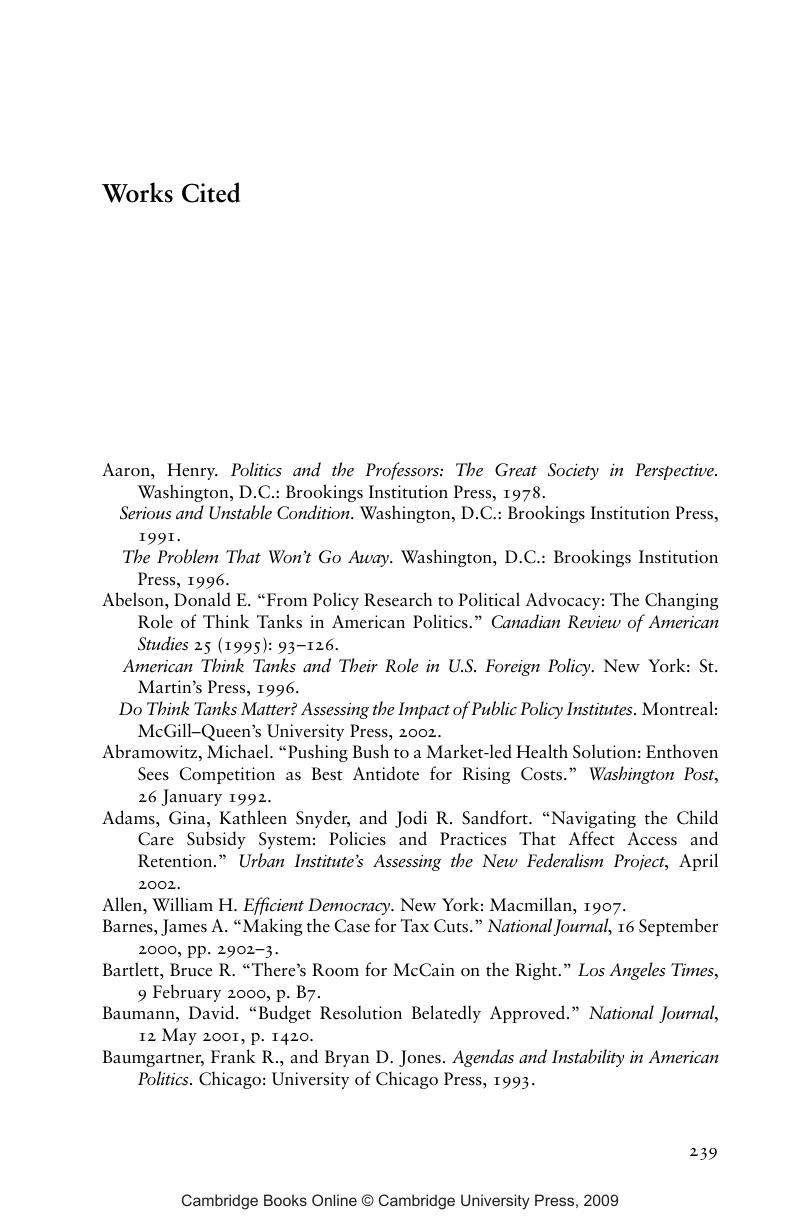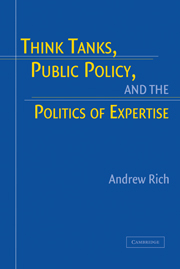Book contents
- Frontmatter
- Contents
- List of Tables
- List of Figures
- Acknowledgments
- 1 The Political Demography of Think Tanks
- 2 The Evolution of Think Tanks
- 3 Political Credibility
- 4 The Policy Roles of Experts
- 5 Policy Influence: Making Research Matter
- 6 Think Tanks, Experts, and American Politics
- Appendix A Details on the Characteristics, Perceptions, and Visibility of Think Tanks
- Appendix B List of In-Depth Interviews
- Works Cited
- Index
- References
Works Cited
Published online by Cambridge University Press: 13 July 2009
- Frontmatter
- Contents
- List of Tables
- List of Figures
- Acknowledgments
- 1 The Political Demography of Think Tanks
- 2 The Evolution of Think Tanks
- 3 Political Credibility
- 4 The Policy Roles of Experts
- 5 Policy Influence: Making Research Matter
- 6 Think Tanks, Experts, and American Politics
- Appendix A Details on the Characteristics, Perceptions, and Visibility of Think Tanks
- Appendix B List of In-Depth Interviews
- Works Cited
- Index
- References
Summary

Information
- Type
- Chapter
- Information
- Think Tanks, Public Policy, and the Politics of Expertise , pp. 239 - 252Publisher: Cambridge University PressPrint publication year: 2004
